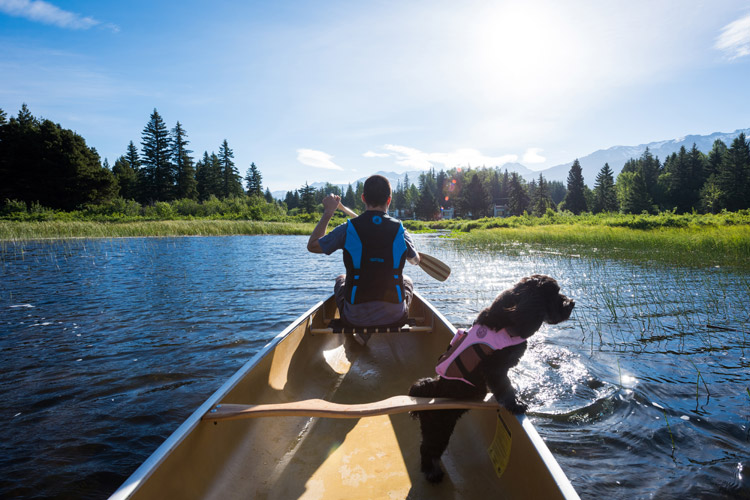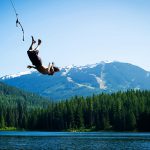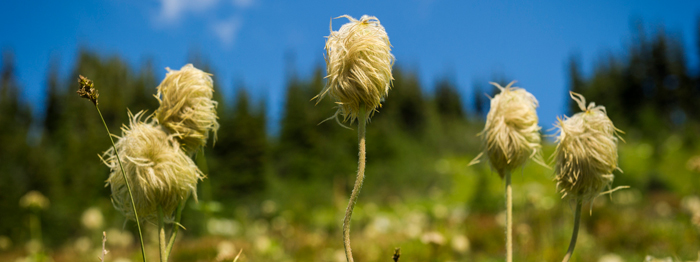
It’s no secret that fresh air and exercise outdoors are “good for you.” Our parents and grandmothers have been saying that for generations and the Norwegians even have an entire concept called Friluftsliv (literal translation: Free Air Life) based on the idea that anything outdoors is beneficial.
Of course, a concept like this is right at home in Whistler with the plethora of amazing outdoor summer activities available at our doorstep. In fact, a recent BC health study confirmed we have some of the most outdoor-active and vegetable-eating residents in the province. The sheer beauty and peace of Whistler’s surrounding mountains, lakes and rainforest ought to be reason enough for everyone to get outside as much as possible. But just in case you need more evidence… It’s science! Here are five lesser-known health benefits to getting outside this summer. See you in the mountains.
1. Eating Dirt is Good For You
Microbes are single-cell organisms that are the oldest form of life on earth. They produce half of the planet’s oxygen, help plants grow, help us digest food and basically keep life on earth rolling along. Microbes are everywhere. Each of us has about three pounds of microbes (nearly 100 trillion of them) in our guts alone and scientists are continuing to learn how important the microbe communities in our bodies (called ‘microbiomes’) actually are.
But as we spend more times indoors, eating antibiotic-assisted, chemically preserved foods the microbiomes in our bodies suffer and need to be replenished. Luckily, dirt has a lot of microbes in it, so do the plants and organisms in a forest. These are microbes our body won’t necessarily find in an urban environment. So the more time we spend ripping through the trees and hero dirt of Whistler Mountain Bike Park, for example, the more helpful microbes we are exposed to. Same goes with hiking past old trees or getting a bit of lake water in your mouth. So when your biking partner says, “eat my dust,” she’s doing you a favour.

2. Nature Strengthens Your Eyes
As we spend more and more time staring at something right in front of our faces (ie: computer, phone, tablet, magazine, video game) science is touting the benefits of staring off into the distance (at beautiful snow-capped peaks for example) to strengthen your eye muscles and prevent fatigue.
But the benefits go beyond that. Nature is full of fractals, natural patterns repeated in scale over space to create semi similar irregular shapes — think of those spiral seashells, snowflakes, a whirlpool, that crazy broccoli, or the way the root system of a tree looks a lot like our own circulatory system. Scientists at the University of Illinois have found that even just looking at the fractal geometry of nature and the multiple layers of a leafy forest can improve brain health, reduce levels of irritability, and generate “a sense of well-being and peace in the observer.” So that alpine hike among the wildflowers is probably exactly what you need right now.
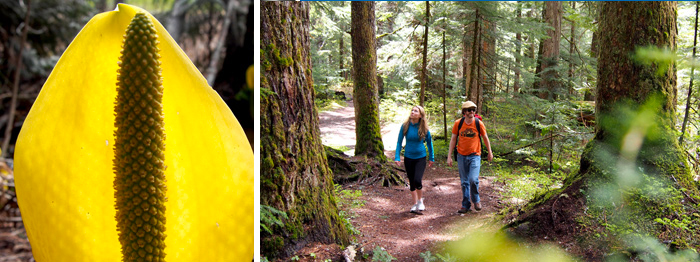
3. The Misty Mountain Forests
In Japan there is a concept called Shinrin-yoku which literally translates as “forest bathing” and research has found that strolling through a forest can lead to a better sense of focus, stronger memory and less depression because the mind gets a break from the overstimulation of daily life. Plus, forest air is generally cleaner. Prolonged exposure to polluted, urban air has been linked to all kinds of nasty heart and lung problems. Getting away from that pollution is key, studies show that even 200 metres away from a road or highway the level of vehicle emissions is 4 times lower. (So you can imagine how low it is on a nice long hike through a rainforest.)
The most interesting theory within Shinrin-yoku, however, comes out of Japan’s Nippon Medical School. Research there suggest that trees emit a fine mist of “wood essential oils” and that prolonged “forest bathing” enhances immune function and lowers blood pressure. This hasn’t been proven beyond a doubt so it might be worth getting outside and taking a walk up to Whistler’s Ancient Cedars or Cheakamus Lake to test it for yourself.
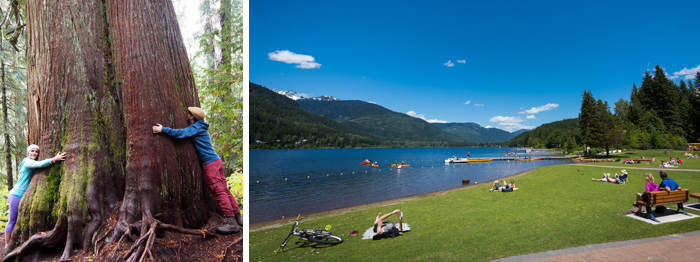
4. Sunshine is Fine (but don’t overdo it)
Sunburn is painful and unhealthy but completely blocking the sun from your skin is definitely is not the answer either. Researchers at the Karolinska Institute in Sweden have found that total avoidance of the sun can make you twice as likely to die as those who sunbath every day and it’s all because of Vitamin D. The human body is capable of producing Vitamin D from the sun’s UVB rays and, ironically, Vitamin D deficiency can also cause skin cancer. Wait, isn’t that backwards? According to at least one dermatologist, sunscreen is preventing you from getting the healthy benefits of sunlight just as much as it protects you from harm.
In Whistelr, the sun is stronger the higher in elevation you get and UV rays can bounce up off snow or water for a double-roast effect so here at The Insider we don’t recommend walking around all day with no sun protection at all. Instead we feel it’s all about moderation and the best bet is to find middle ground, get some sun, but not too much and don’t be afraid to cover up with long-sleeved shirt or large hat. The obvious Whistler option for maximum sunshine is to hit one of the Valley’s epic alpine lakes or beaches.
5. Walk your Blues Away
We know walking is good for your heart and bones. It helps burn excess calories, fix posture issues and slashes the risk of things like asthma and diabetes. Philosophers and deep thinkers like Thoreau to Kierkegaard have long extolled the value of walking and more recently, author Rebecca Solnit dedicated an entire book to the simple and instinctive human act of putting one foot ahead of the other:
“Walking itself is the intentional act closest to the unwilled rhythms of the body, to breathing and the beating of the heart,” Rebecca writes. “It strikes a delicate balance between working and idling, being and doing. It is a bodily labor that produces nothing but thoughts, experiences, arrivals.”
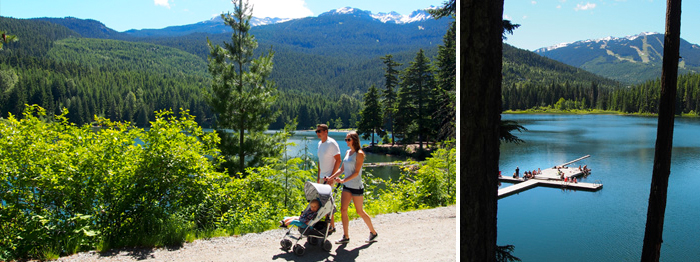
The rhythm of walking, or hiking, through the Whistler landscape can align the mind, body, and external world into a single act. It frees the imagination and gives space to the creative side of your brain. If you have stress or problems in your life try take them out to the Lost Lake trails, you may just be able to walk it off.
Of course, there are as probably at least as many yet-to-be-discovered health benefits to getting outside as there are fun and amazing summer things to do in Whistler, best bet is to do them all and see for yourself. Find all the info you need on Whistler.com
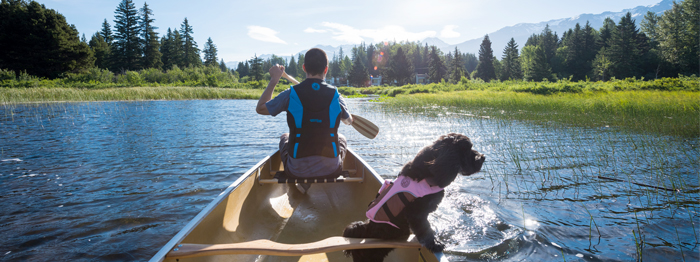
Editors Note: While The Insider 100% believes getting outside is healthy, it’s never wise to take health advice from a single Internet article or an untrusted source. The safest bet is to consult your health care practitioner before leaving the house each day, and then get a second opinion. Regardless, here are the sources we used for this story: Microbes, Fractals, Forest Bathing, Sunshine, Walking. Be safe, be healthy, happy summer.
